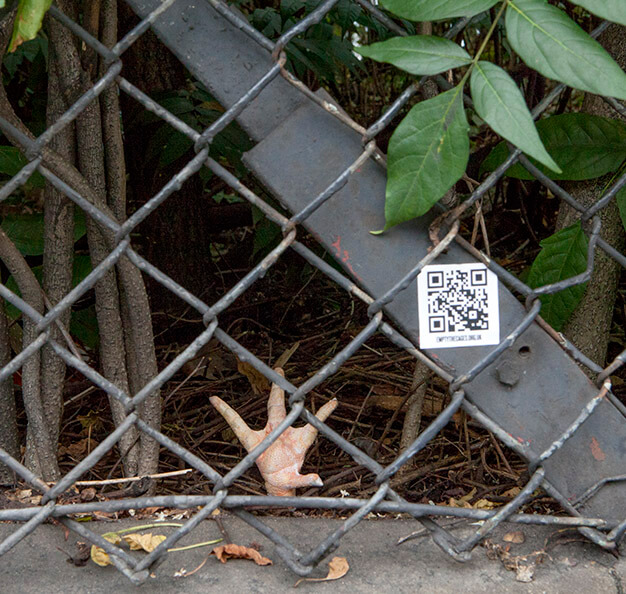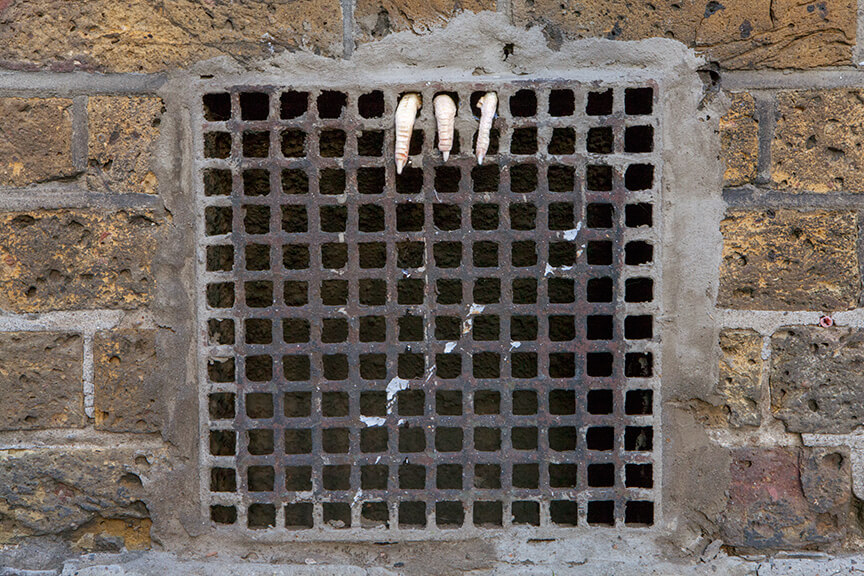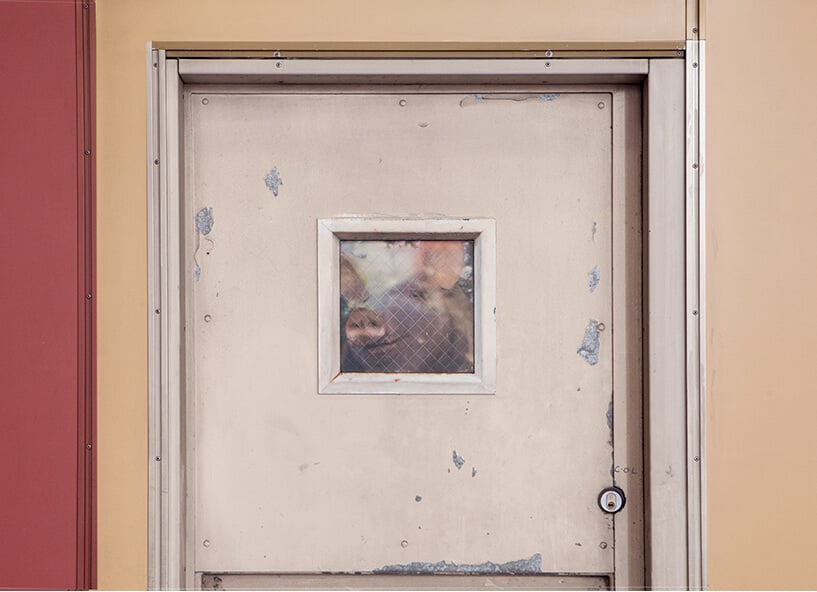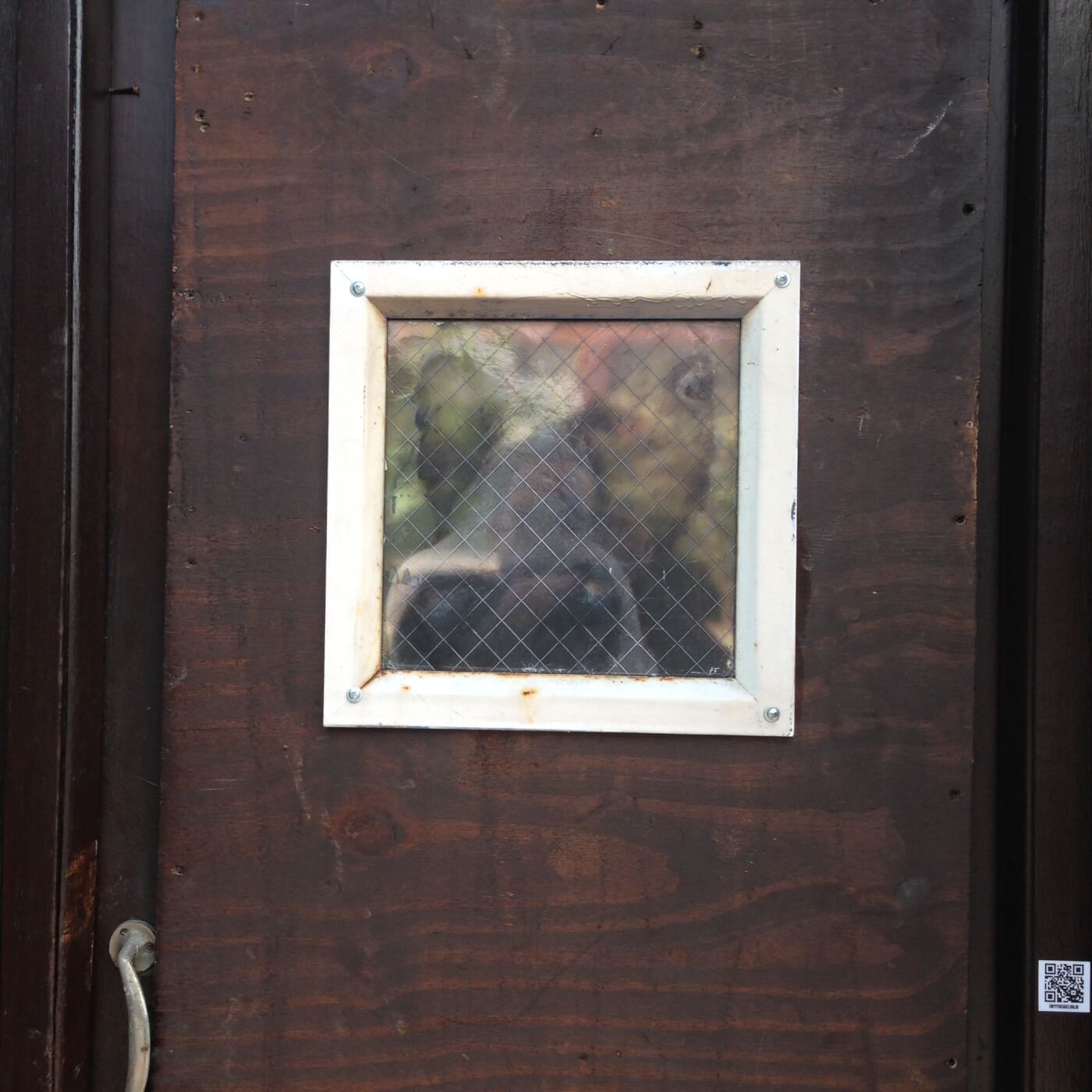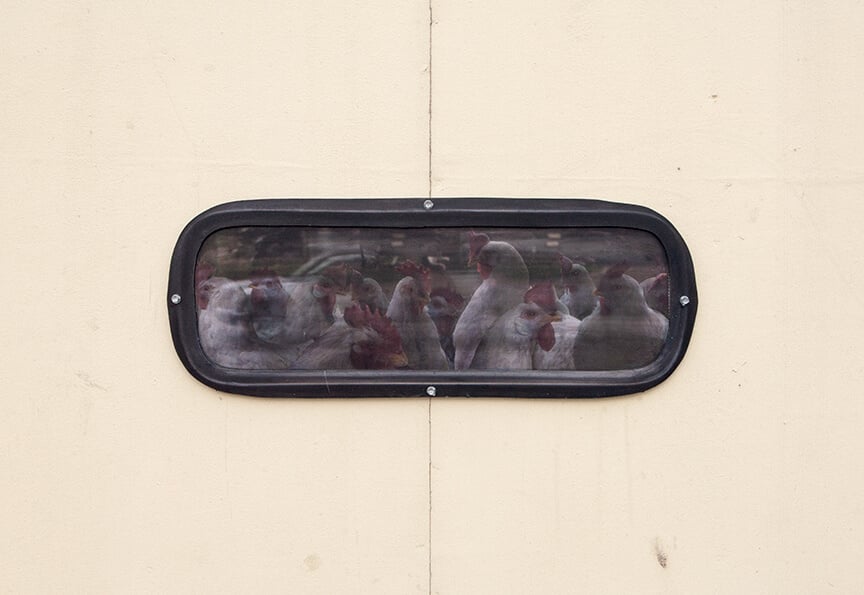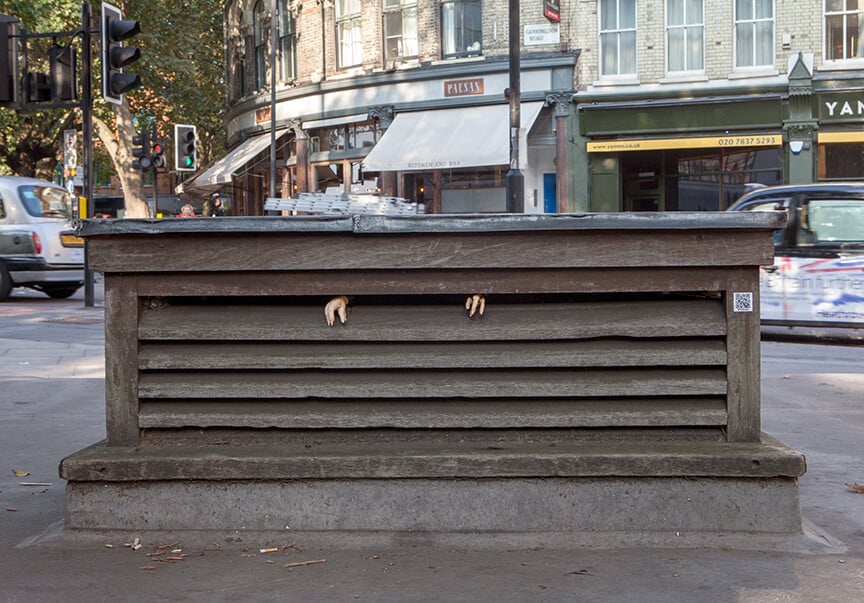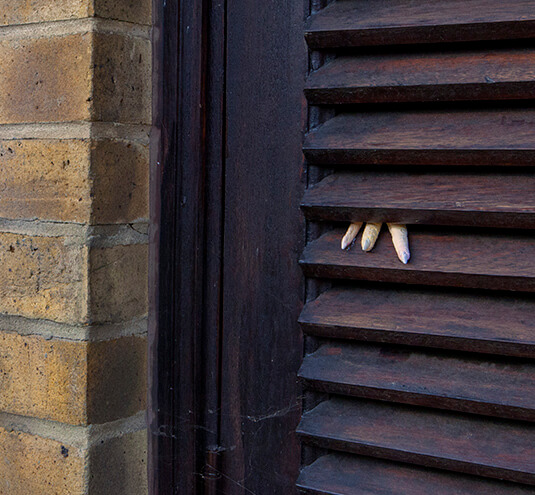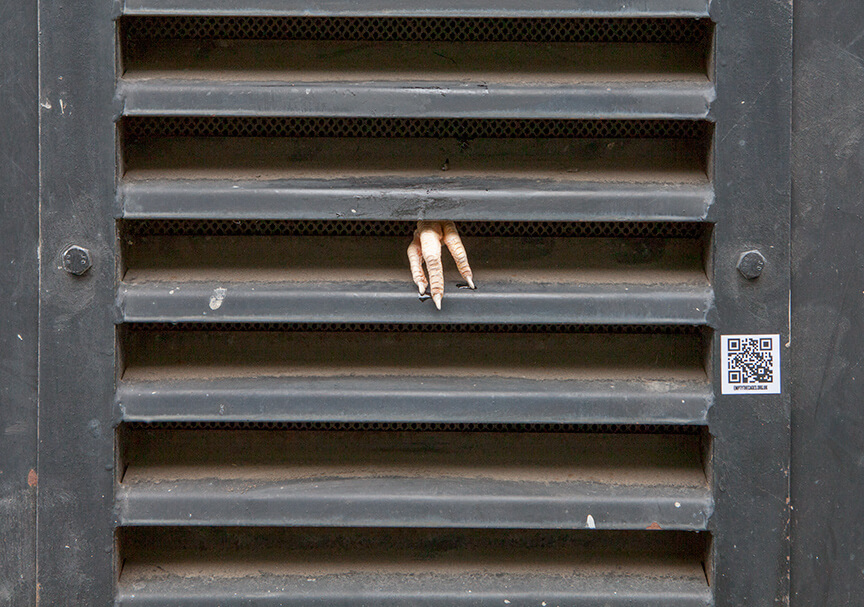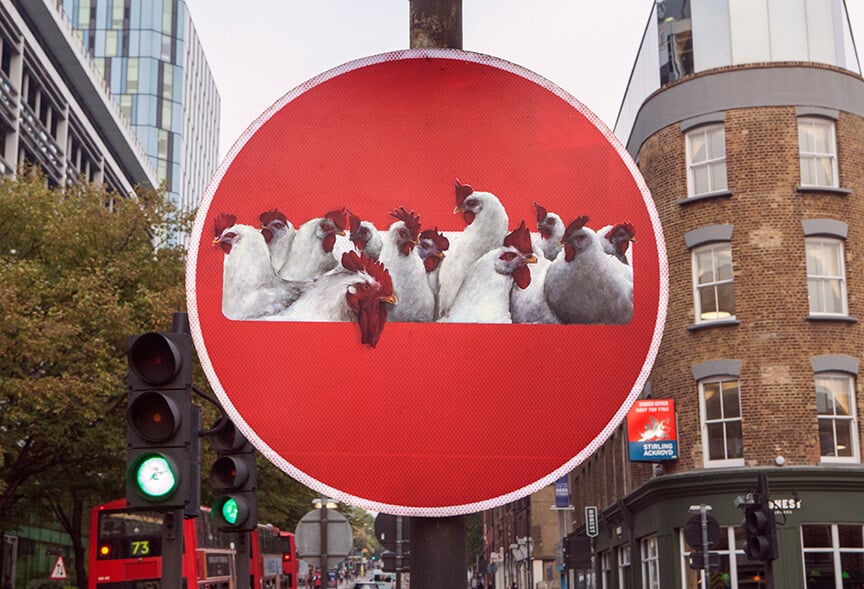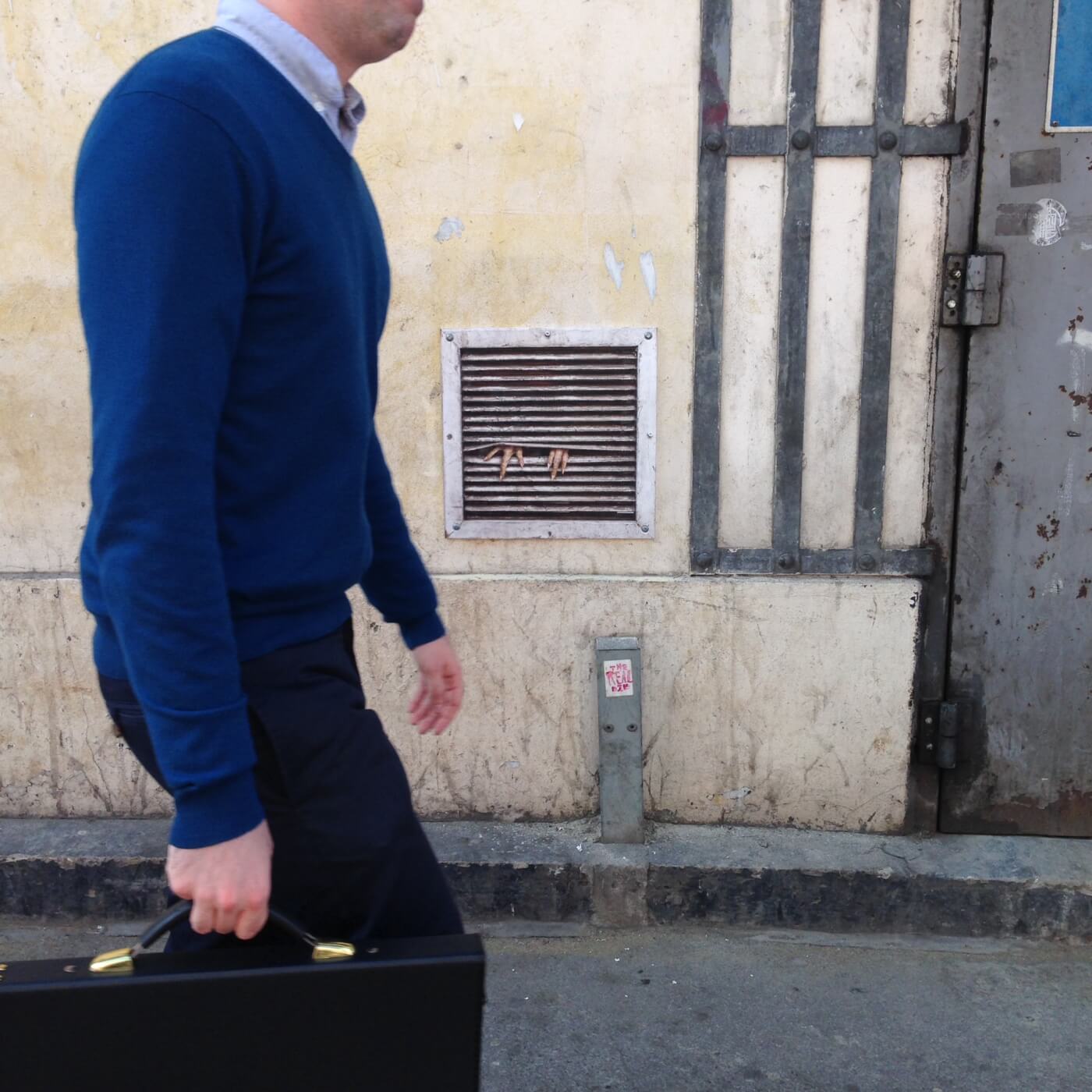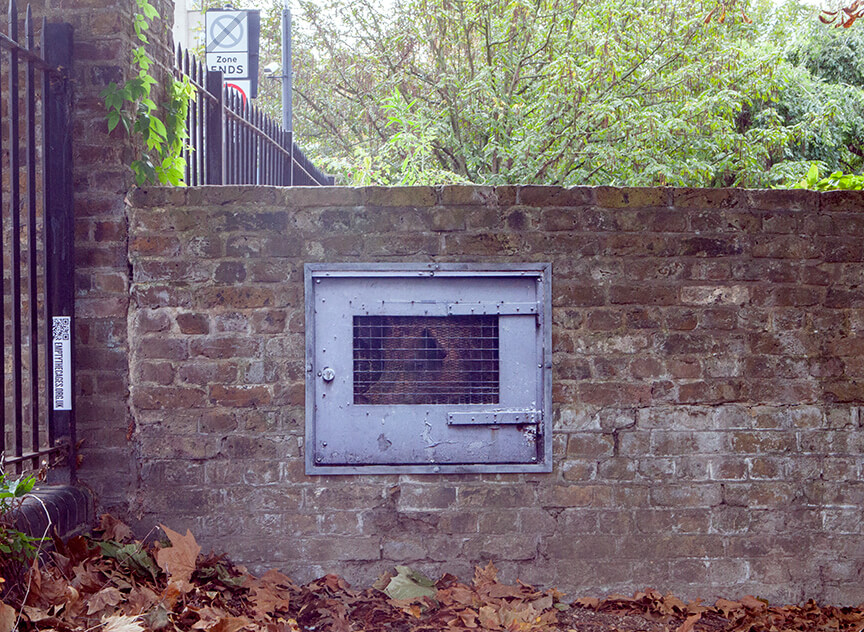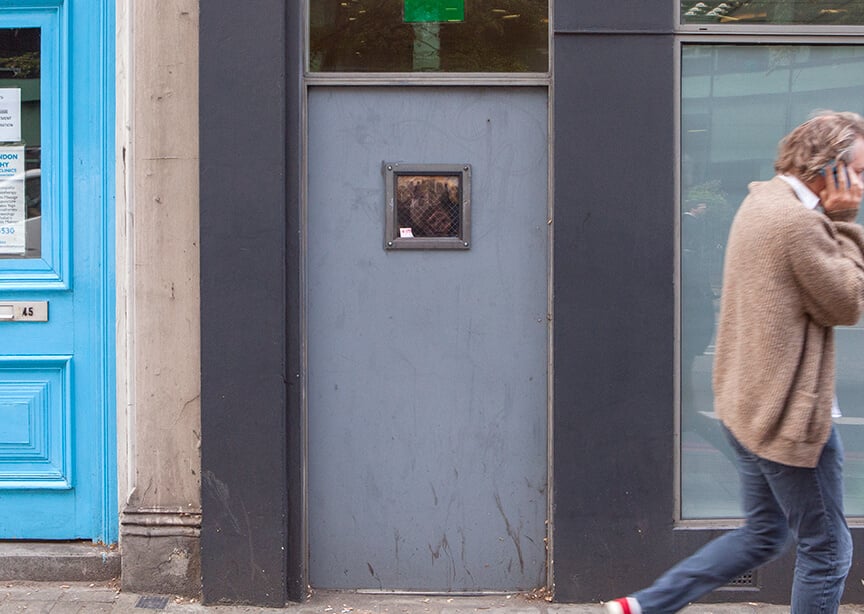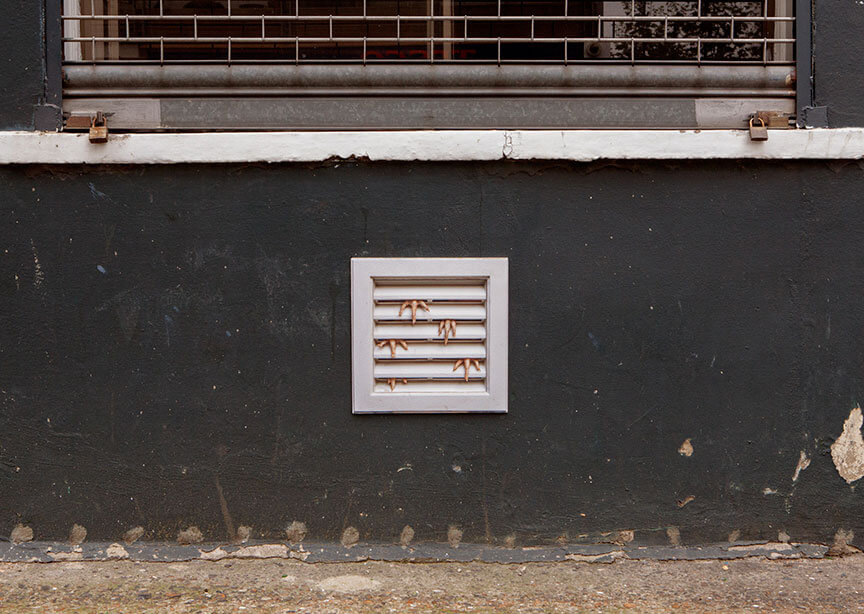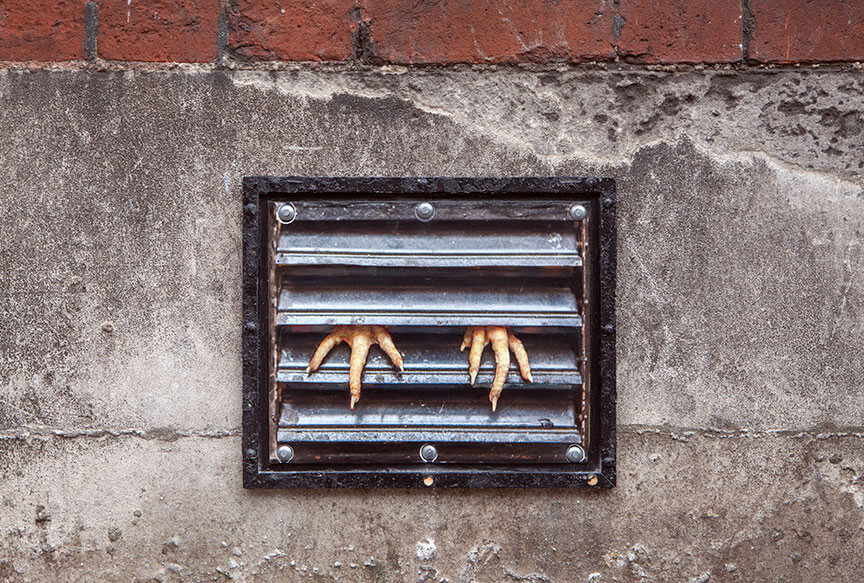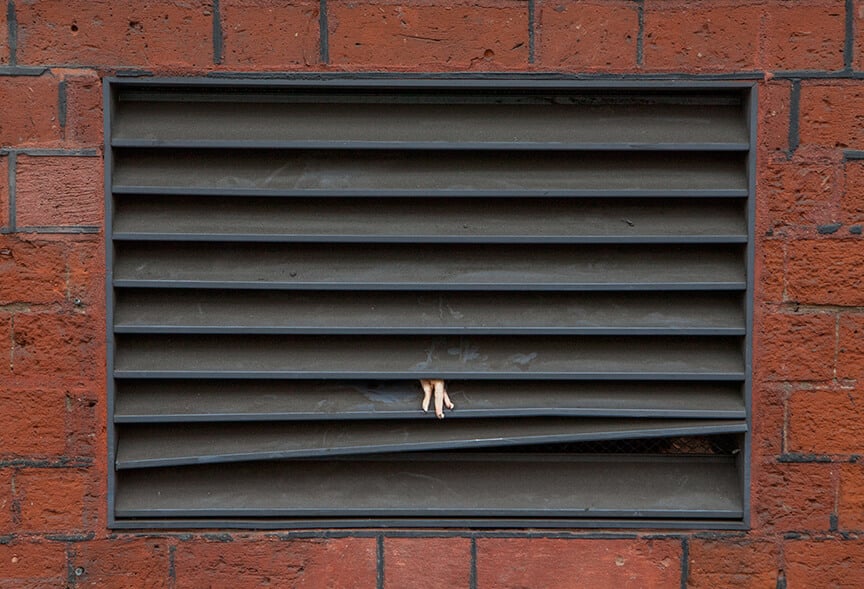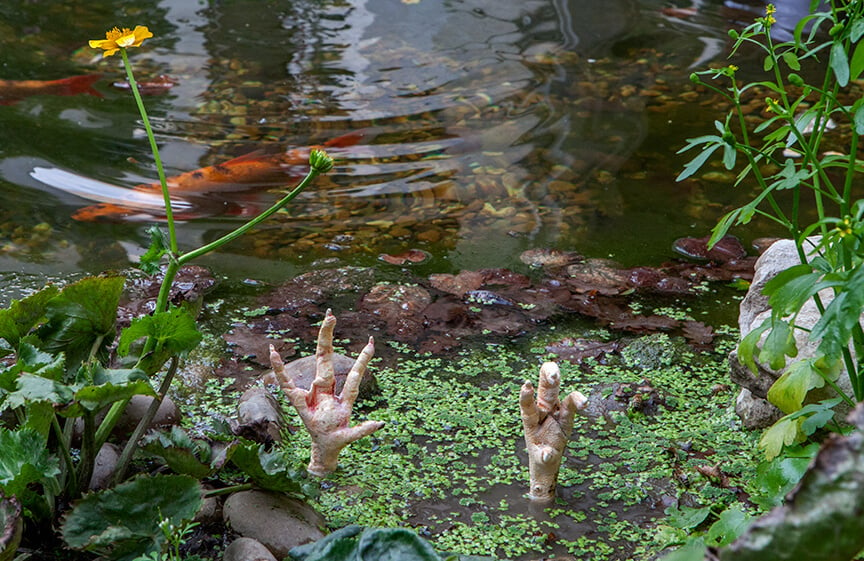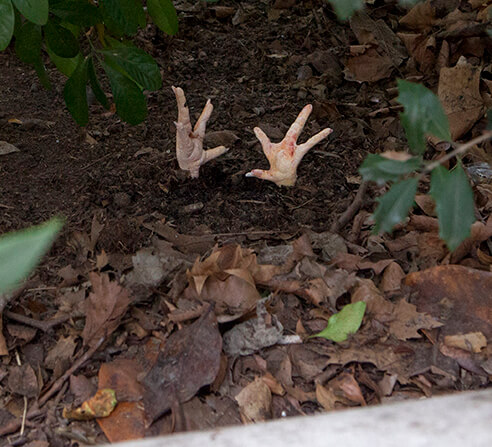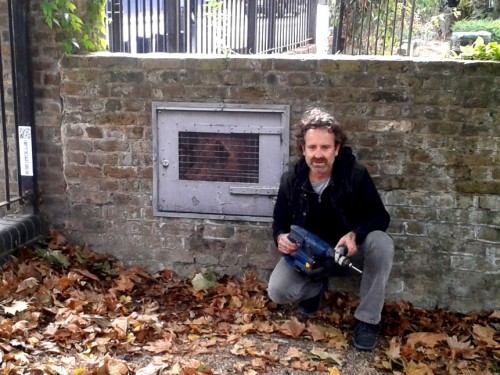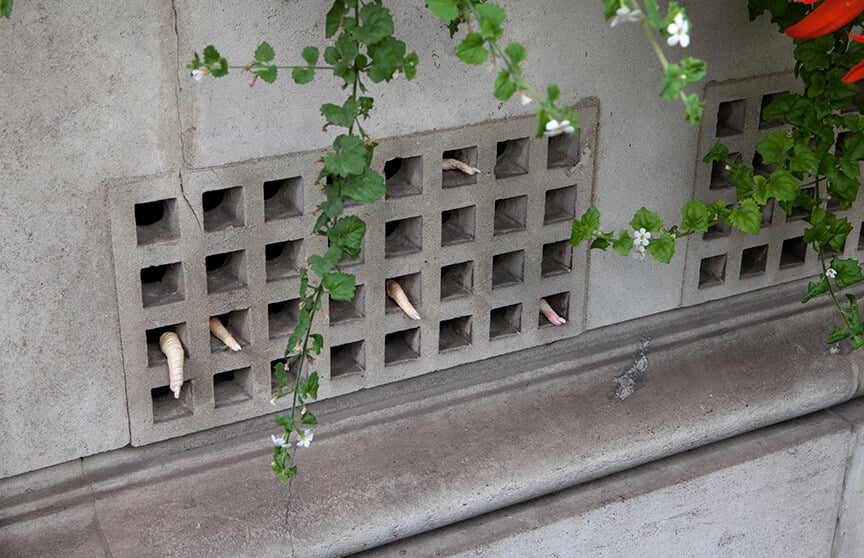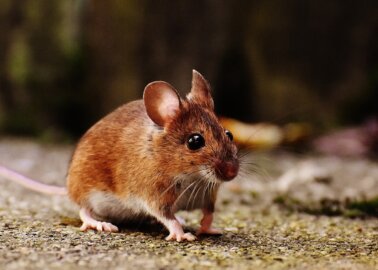Street Artist Dan Witz: Why ‘Empty the Cages’?
Street artist Dan Witz’s thought-provoking collaboration with PETA, “Empty the Cages”, is causing a stir across London, as dozens of unsettling installations encourage Londoners to open their eyes to animals’ suffering.
Dan explains the inspiration for the project:
Like most artists, I’m interested in exploring what society hides from itself. As a human, I’m concerned with injustice. But, like most people, I feel powerless to do anything about the downward spiral our planet seems to be taking. But, as someone who operates in the public commons, with my street interventions, sometimes I get the opportunity to directly address this frustration, to provoke a dialogue about issues that matter to me.
It wasn’t until the anti-whistleblower ag-gag laws began passing in the United States that my attention was drawn to America’s animal agriculture industry. Further exploration revealed unbelievable depths of abuse – perpetrated against not only farm animals, but also the environment. Climate change, deforestation, wildlife extinction, water waste, air pollution and ocean dead zones (among other things) are all directly attributable to meat, dairy and egg production. And then there’s the merciless ways in which these deep-pocketed and powerful entities treat their employees, not to mention the local irreversible environmental damage. It’s truly unconscionable what these corporations get away with, day in and day out with seeming impunity.
This is why when PETA UK invited me to partner with them on the Empty the Cages project, to raise awareness surrounding animals raised for food and their dire plight, I didn’t hesitate to say yes. If encountering my pieces brings this topic to anyone’s attention, then art matters, because life matters, and I’m satisfied.
Dan created these pieces to connect us with the billions of individual animals who suffer and die out of sight each year for food.
The Empty the Cages project seeks to bring these animals out from the shadows – and remind us of what happens every day on farms and in slaughterhouses. At the same time, it reminds us that their fate is in our hands and that we have the power to save them by choosing not to consume their flesh.
